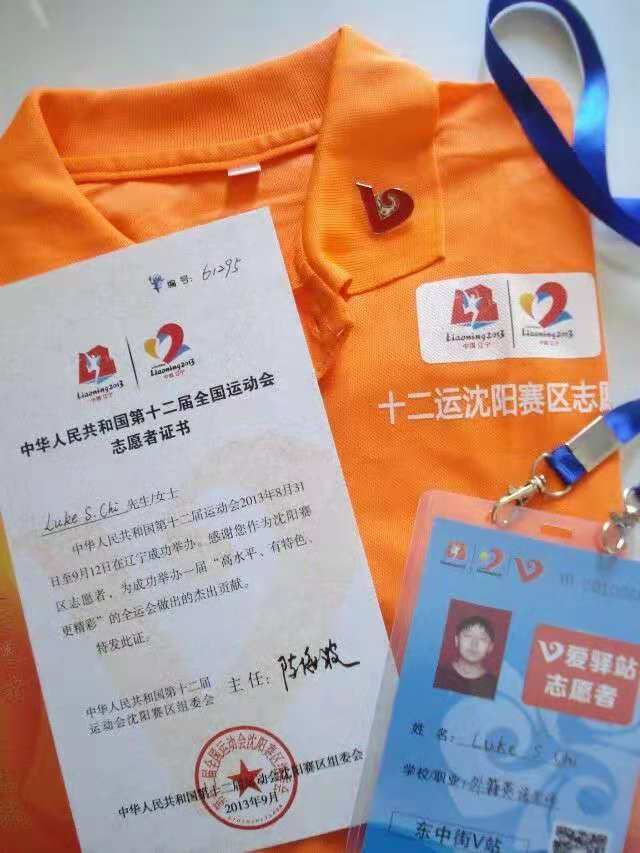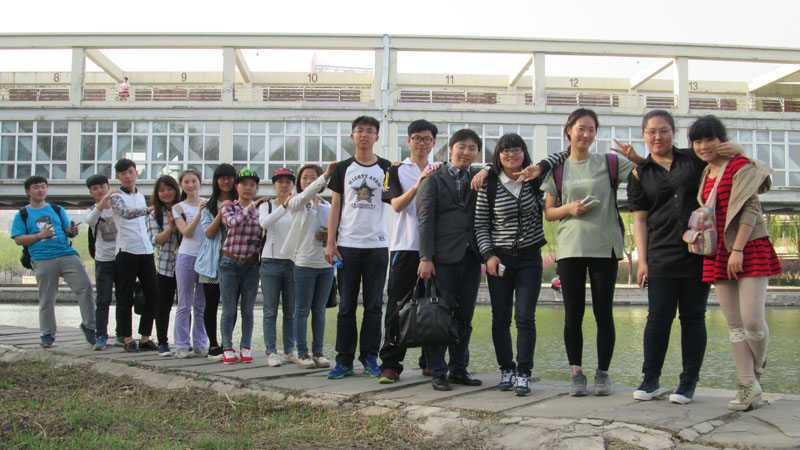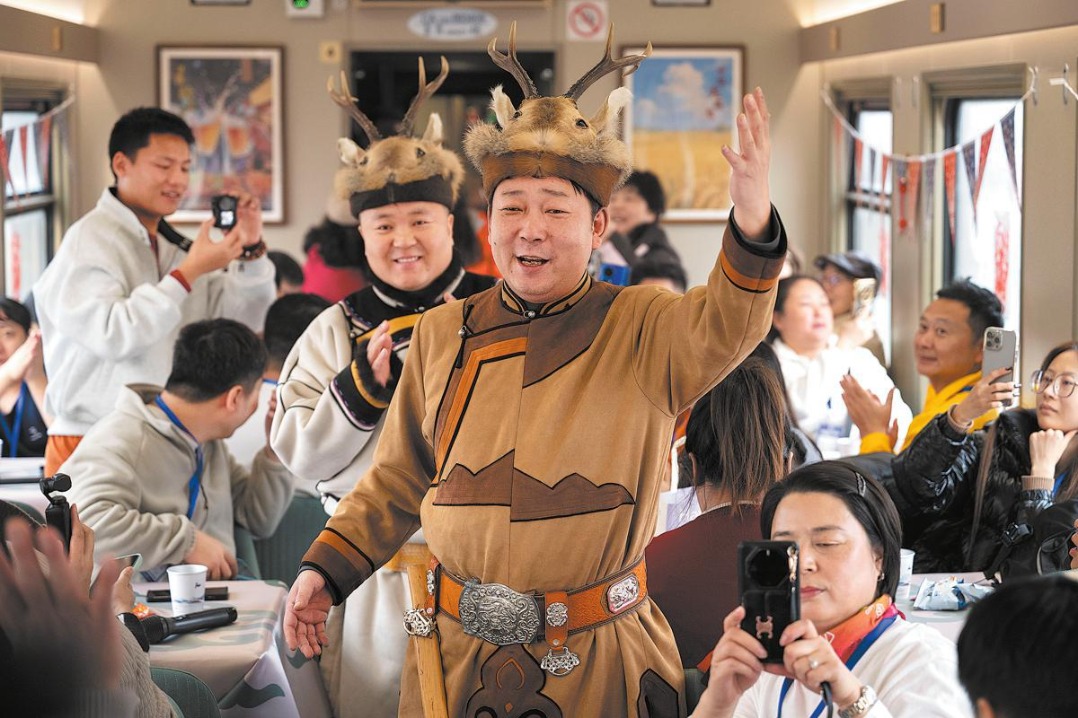How one video made me a volunteer
By Luke Shen-Tien Chi | chinadaily.com.cn | Updated: 2018-11-28 14:57

Five years ago, I caught the Shenyang Metro Line 2 and was struck by a video playing in the station. As a Chinese-American, I couldn't fully understand the video, but I grasped its core message. It showed people from all over the world and from different careers, working together for the betterment of their community. I could understand some of the video's text and recognised that the community they were talking about was in Liaoning.
The video stirred something in me: it made me want to be included; it made we want to be a part of something.
I later learned that the video was a call for volunteers ahead of the 12th National Games of China, which were to be held in Liaoning. The volunteers were needed to make the games a success, and as the event grew closer, the advertisements became more and more visible. I knew I had to get involved.
When the games commenced, I made my way to where the event volunteers were stationed. While I was there, I had the chance to meet the volunteer department head. Although volunteers were assigned to a multitude of different jobs – some more glamorous than others – I had no preference or agenda. I just wanted to help.

I think that's common of many people, regardless of where they come from; it’s an inherent characteristic of the human race: to want to contribute to something big, to be part of a collective.
I got a job in a subway station with security staff, checking the possessions of passengers attending the games for any dangerous items. I carried out all my tasks during the games and had a great time.
I loved it. So much so that after the event, I returned to the volunteer headquarters in Shenyang, hoping to get another similar position. I was lucky to get a new posting.
It turned out that my expertise in spoken English was needed, and I got a volunteering job helping undergraduates with the language. It was to start at the beginning of spring semester 2015, and I decided to focus on "Spokenology", a term I came up with to refer to a way of teaching spoken English.
During the early days, I had great difficulty finding the universities in which I was teaching. I would always however do my best to arrive on time.
In a number of cases, it could take two-to-three hours to get to the university, but I would remember President Xi Jinping's words: "Only those who brave hardships would prevail." These helped me through some of my tough times.
I've now spent ten years living in northeastern China, and I've felt truly at home. I spend a lot of time teaching at Liaoning University, which is enchanting during the autumn months. Tourists from across the world visit and take in the changing colours of leaves on the trees.
It's often said that you have to go slow in order to go fast; that you need to build strong foundations before building anything. The people of Shenyang, Liaoning's capital, have stayed true to this adage.
The city has spearheaded the continuous growth of Liaoning, all at a steady pace. I'm proud to progress alongside my Shenyang compatriots and see the city transform into a great place to live.
As I think back on my experiences volunteering, I remember that video in Shenyang Metro. That was what brought to me the world of voluntary work. One small video led to the fulfillment – both personal and collective – I've felt volunteering.
If I were asked what happened during the 12th National Games of China, I'll say this: people came together, people from different backgrounds and with different skills, and decided to be a part of something bigger than them.
Luke Shen-Tien Chi is a spokenologist at Shenyang Normal University and author of Spokenology: You and Me, published by Tsinghua University Press.
























